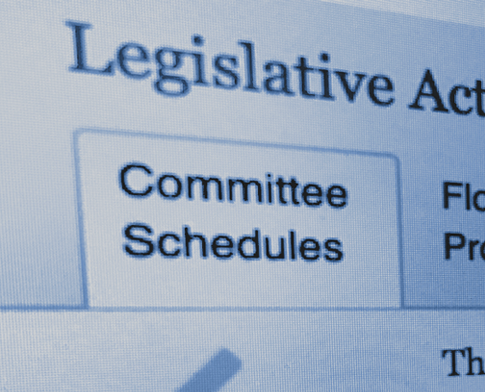| Drug Pricing
Early in January 2018, a federal judge ruled that the Trump administration could begin cutting $1.6 billion from the 340B drug pricing program. The hospital industry requested an injunction to block reductions to the program, but the court sided with the Department of Health and Human Services. As announced in January the hospitals would refile their lawsuit against HHS once the cuts went into effect. This week, the American Hospital Association, the Association of American Medical Colleges, and America’s Essential Hospitals refiled their lawsuit. The associations were initially prevented from refiling an appeal this summer but were able to do so after filing claims that satisfied procedural concerns from the DC District Court. In a joint statement, the associations said, “For over 25 years 340B program drug discounts have played a critical role in helping hospitals expand access to care for vulnerable patients and communities at no cost to the federal government.”[i]
On Tuesday, the Senate unanimously passed S. 2553, the “Know the Lowest Price Act of 2018.” The bill would amend the Social Security Act to prevent what is known as the pharmacy gag clause, in which insurers and pharmacy benefit managers forbid pharmacists from telling patients if paying for a drug out of pocket is cheaper than paying through their insurance plan. The bill applies only to Medicare Part D and Medicare Advantage, but another bill, the Patient Right to Know Drug Prices Act, would apply to patients with private health insurance.[ii] S. 2553 has been referred to the House Committee on Energy and Commerce, but the House also has its own version in the form of a discussion draft which was passed out of subcommittee on Friday. Rep. Buddy Carter (R-GA), the only practicing pharmacist in Congress, said today that he “looks forward to passing this legislation.”
Affordable Care Act Litigation
Arguments began this week in the case seeking a preliminary injunction stopping enforcement of the ACA. 20 Republican state attorneys general filed the lawsuit in February, and U.S. District Judge Reed O’Connor began hearing requests from both sides this week, rejecting a request from the plaintiffs to suspend the ACA outright. The 20 attorneys general argue that because the individual mandate was repealed in the Tax Cuts and Jobs Act (TCJA), the underlying legal requirement to have health insurance is unconstitutional. No date has been set for when the court will issue a ruling, but Judge O’Connor said he would act “as quickly as I can.”[iii]
The Texas Court of Federal Claims also made news this week regarding ACA litigation. Judge Elaine Kaplan issued a ruling on Tuesday that insurers are entitled to cost-sharing reduction (CSR) payments, even without congressional appropriation. This is in direct contrast to the ruling earlier this year in House v. Azar, a decision that held CSRs without appropriations violated the appropriations clause of the Constitution. The decision by Judge Kaplan is considered the first ruling on the entitlement of insurers to CSR payments. In her words, “The statutory language clearly and unambiguously imposes an obligation on the Secretary of HHS to make payments to health insurers that have implemented cost-sharing reductions on their covered plans as required by the ACA.”[v]
Maine Medicaid Expansion
Governor Paul LePage (R-ME) complied with a court order to expand Medicaid, but he is asking the federal government to reject his application. Gov. LePage ordered the Maine Department of Health and Human Services to file the State Plan Amendment, which is the required documentation to begin expansion of Medicaid to an estimated 70,000 residents of the state. However, as a vocal critic of the health care law, Gov. LePage strongly encouraged CMS to reject the application.[iv]
FDA News
The Food and Drug Administration issued draft guidance this week on making benefit-risk determinations in medical device approvals.[vi] All comments and suggestions are due by December 5th.
Hearings
This week, the Senate Veterans’ Affairs Committee held a hearing to examine James Gfrerer’s nomination to serve as the VA assistant secretary of Information Technology. The hearing explored the transition of VA’s current ViSTA Electronic Health Record (EHR) to one implemented by Cerner. This transition is being done in order to make VA’s EHR more consistent with similar efforts at the Department of Defense. During questioning by Sen. Dan Sullivan (R-AK), it was revealed that this transition will occur over the next decade. While members want this implementation sped up, it was clear that would only occur if and when additional funding is provided by Congress. Sen. Bill Cassidy (R-LA) was curious about the benefits of the DOD/VA partnership and asked Gfrerer to report back to the committee with a report about those benefits and assessment using the DOD system at the VA.
On Wednesday, the Health Subcommittee hearing entitled “Opportunities to Improve Healthcare,” covered a broad array of drafted and pending legislation regarding healthcare. Topics discussed during the hearing included strengthening jurisdiction for state’s attorneys general to pursue and prosecute patient abuse cases related to Medicaid, along with bipartisan support in the effort to eliminate gag clauses, which can result in inflated prescription drug prices for consumers. The Money Follows the Person (MFP) and the Advancing Care for Exceptional Kids Act (ACE Kids Act) both received overwhelming bipartisan support from the committee and the witnesses. Both programs would allow individuals and children with complex medical conditions to receive necessary funds, treatment, and flexibility for care options. Furthermore, all bills and discussion drafts during the hearing received almost unanimous bipartisan support from the committee. During the subsequent committee markup on Friday, September 7, all bills were unanimously approved.
Also on Wednesday, the House Ways and Means committee held a hearing on four health care bills: H.R. 6662, the Empowering Seniors’ Enrollment Decision Act of 2018, H.R. 6690, the Fighting Fraud to Protect Care for Seniors Act of 2018, H.R. 6561, the Comprehensive Care for Seniors Act of 2018, and H.R. 3635, the Local Coverage Determination Clarification Act of 2017. These bills, which are part of the committee’s Red Tape Relief Project, were all approved by the committee and reported favorably to the House. While all bills had bipartisan support, H.R. 6690 created the greatest amount of controversy among Republicans and Democrats, with several Democrats insisting that the committee not move forward with such a bill until Medicare solvency was improved.
[i] https://news.aamc.org/press-releases/article/hospital-groups-continue-fight-refile-lawsuit-reve/
[ii] https://www.beckershospitalreview.com/pharmacy/senate-votes-to-ban-pharmacy-gag-clauses-5-things-to-know.html
[iii] http://www.latimes.com/politics/la-na-pol-obamacare-court-hearing-20180905-story.html
[iv] https://www.pressherald.com/2018/09/04/lepage-files-plan-to-expand-medicaid-but-asks-feds-to-reject-it/
[v] https://www.healthaffairs.org/do/10.1377/hblog20180906.295628/full/
[vi] https://www.fda.gov/downloads/MedicalDevices/DeviceRegulationandGuidance/GuidanceDocuments/UCM619220.pdf |


